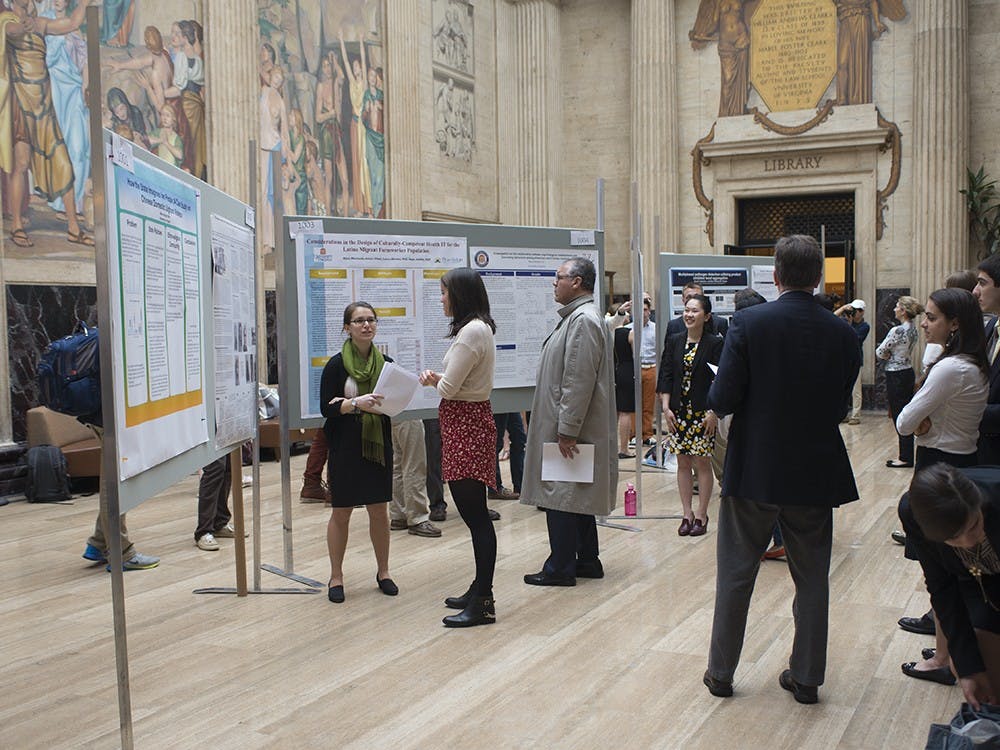The Undergraduate Research Network, a special status organization under the Center for Undergraduate Excellence and established in 2001, is dedicated to fostering an interdisciplinary research community among undergraduates at the University.
URN Chair Sarah Wyckoff, a fourth-year College student, outlined the organization’s goals.
“It’s [about] helping students get involved, building the community and supporting them and then displaying their work,” Wyckoff said.
URN provides online resources that enable students to discover research opportunities and connect with faculty members. On the URN website, students have access to a database called UNLEASH that connects students with research projects sponsored by professors. The website also features a how-to guide for students who are interested in getting involved with the research at the undergraduate level.
“We help students get in contact with professors, and we have a number of resources to help them do that,” Zack Dailey, fourth-year College student and URN outreach chair, said.
In addition, URN plans many events to further students’ research endeavors, including various workshops and an annual research fair.
“We have done grant writing workshops, resume writing workshops and design thinking workshops,” Wyckoff said. “Essentially, these are for building the skills that [students] need to be successful in research.”
URN also puts on a research symposium to display the work of student members of the network as well as Center for Undergraduate Excellence grant winners. Student participants have the opportunity to present their research to members of the University faculty from various departments.
Additionally, students who have generated publishable findings can choose to submit them to “The Oculus,” a research journal URN publishes in the spring.
“‘The Oculus’ is the University’s only multidisciplinary undergraduate research journal,” Wyckoff said. “It publishes eight to nine papers in the Spring, and it is completely student run.”
URN seeks to connect students to opportunities in both the hard sciences and in the liberal arts.
“We’re a very broad organization in terms of who we’re trying to target and serve,” Wyckoff said. “I love having the opportunity to talk to the general student body because so many people are interested in research, but they don’t know where to get started … that’s the biggest barrier to entry.”
Internally, URN is organized into six committees that focus on their different programs.
“I’m in charge of outreach — getting people involved in the organization — and I’m also in charge of promoting the events we put on,” Dailey said.
The organization has grown substantially in the past three years, both as a result of word of mouth and increased outreach. Students can join the network or apply to be officers within the organization during open recruitment events that occur in the beginning of both fall and spring semesters or as the result of a professor nomination. Current members of the organization have had very positive experiences.
“I really enjoy the research that I do, and I know it was difficult to get involved first year,” Dailey said. “Joining an organization to help [others] get involved in research has been a valuable use of my time.”
While research topics are academically enriching, URN members also find meaning in the relationships they have formed with other students involved in the program.
“Being able to say, ‘There are students here who can help you can support you,’ has been incredibly rewarding,” Wyckoff said. “It’s a lot of good people who are doing what they care about — I’ve had so much fun.”







